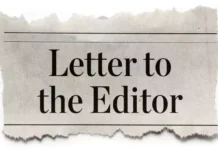COMMENTARY – A recent report indicating a judge’s concern about a missing file from the court registry added to a growing list of long-standing issues related to the performance of specific Ministries that have been worrying some court judges.

In his decision earlier this month to set aside a court order he had previously announced regarding a dispute between the Tonga Development Bank and media whistle-blowers, Lord Chief Justice Malcolm Bishop turned the spotlight on the court’s filing system.
He noted that there have been instances where important legal documents have gone missing or been misfiled, raising questions about the efficiency and effectiveness of the current process.
In his decision, Mr Bishop said:
“… there is some dispute or least difficulty about matter but having regard to the unfortunate circumstance that documents filed sometimes go astray in the present State Of the registry”.
The document in question was a response submitted by one of the accused addressing the TDB’s allegations against him. Due to the absence of this document, the Chief Justice previously imposed more than a million fine on the accused after he allegedly failed to submit a reply within the stipulated timeframe.
However, the accused disputed the decision and submitted an affidavit to prove he had filed his response on time, and the Chief Justice finally agreed.
Mr Bishop’s concern is only the tip of the iceberg, indicating a much deeper problem within the government ministries and departments. Therefore, it is pertinent to look at a selection of the issues that have been reported in the media previously.
We previously reported concerns raised by a former Chief Justice regarding the Ministry of Transport’s issuance of a driver’s license under the table to a disabled young man. The disabled, while driving his car, struck a mother, resulting in her death.
Police performance challenged
As Kaniva News reported previously, Justice Nicholas Cooper had been concerned about the police’s failure to disclose what appeared to be names of drug ringleaders listed in “note books” confiscated during a drug bust.
Mr Cooper commented when sentencing a drug dealer, Palatoni Laimani, to seven and half years in prison in December.
He was concerned about the police failing to submit to court the list to assist in his decision making.
He described Laimani’s case as very serious, and “it was large scale commercial supply” of drugs. He said, “ the presence of a firearm in the context of this drug dealing I consider a serious aggravating feature”.
Ministry Lands staff
We also previously reported that the Land Court of Tonga has ruled that the Minister for Lands was incorrect in refusing to rectify a mistake made by his office on a land deed.
In that case, it was claimed that the Ministry of Lands mishandled files and only found a minor mistake they overlooked when confronted with them in court.
The court ruled in favour of the client, however, the judges expressed concerns regarding the inability to resolve such a minor issue at the Ministry level. This failure to address the matter adequately escalated to the judicial system, ultimately imposing a financial burden on the taxpayers.
The judges’ remarks reflect growing frustration within the community, including Tongans in the diaspora, about persistent problems in maintaining accurate and accessible court files.
The Ministry of Lands is commonly associated with issues related to missing files and inadequate record-keeping, which have resulted in various ongoing challenges.
Police Records unlawfully cleared
As reported in 2013, 172 former criminals in Tonga had their records wiped by police officers.
Tonga police had created the scheme to dishonestly clear former records of criminals who had wanted to allow them to apply for visas for overseas travel.
The then Police Commissioner Grant O’Fee made a quick turnaround of the police record keeping and said:
“We’ve put new locks on doors, we are in the throes of replacing filing cabinets and ensuring that it is physically locked away. The staff – the young staff that work in that office are very good people – and I am working very, very closely with the New Zealand and the Australian High Commissions to ensure that they get all the information that I have got. I have done everything that is humanly possible to ensure it does not happen again, but I am not going to use the word guarantee.”
Eke review policy
The Eke government is currently conducting reviews of all ministries and departments.
It was to ensure each ministry was functioning properly and delivering intended outcomes in line with government goals.
However, it has also been indicated that the objectives included reviewing to identify potential deficiencies that allegedly pertained to mismanagement and the abuse of authority.
Establishing guidelines for thoroughly investigating and tracing all instances of reported mismanagement highlighted in the media is essential.
This program should document each case and analyse the context, patterns, and consequences of the mismanagement.
By doing so, it can identify systemic issues, hold those responsible accountable, and implement necessary reforms to prevent future occurrences.
A transparent and accountable approach will enhance public trust and ensure that the concerns raised by the media are addressed effectively.







